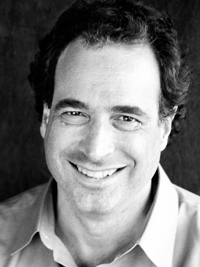 What happens next in the economy – the nation’s, the state’s, and Seattle’s – no longer lies in the hands of Capitol Hill politicians, the Federal Reserve, or even the boards of companies like Microsoft and Starbucks. It depends on entrepreneurs like Jason Brown, who has big ambitions for his small business. Jason recently opened a grocery store in the heart of downtown Bellevue called Your Local Market. It combines the best features of Whole Foods, like high-quality local and organic products, with down-to-earth prices and familiar brands of low cost cleaning products.
What happens next in the economy – the nation’s, the state’s, and Seattle’s – no longer lies in the hands of Capitol Hill politicians, the Federal Reserve, or even the boards of companies like Microsoft and Starbucks. It depends on entrepreneurs like Jason Brown, who has big ambitions for his small business. Jason recently opened a grocery store in the heart of downtown Bellevue called Your Local Market. It combines the best features of Whole Foods, like high-quality local and organic products, with down-to-earth prices and familiar brands of low cost cleaning products.
Jason, however, is not your typical small businessperson. For more than three decades he has been an innovator in retailing. He brought Columbia Sportswears to New Zealand and Australia. He created the Natural Apothecary, which was sold to Wild Oats, and then went on to develop Andrew Weil Vitamin Advisor. He grew a bi-coastal company called Organic To Go, which at its peak made healthy options available in 33 cafes and 150 outlets.
Today, Jason is all about “local.” He and his team have scoured the Pacific Northwest for great suppliers of local fruits, meats, and wines, and now has more than 3,000 regional products. He has turned his store into a community center, with a full calendar of speakers and special events like single’s nights. He holds monthly fundraiser in the store that has generated more than $36,000 in new donations for children’s organizations. He has recruited local angel investors to become owners, and is committed to keeping the store into the hands of the community. Unlike Organic To Go, which was a national chain that ultimately was taken over and then taken apart by international investors, his is committed to growing more stores only in the state of Washington.
So far, the business has fared remarkably well, considering the times we’re in. It opened in November and weekly sales have grown steadily to a peak of over $200,000. It has added 75 jobs to the Bellevue economy (probably double that when indirect effects are counted), and has already become a significant generator of taxes for the city, county, and state. For three years prior to opening, site was an eyesore with an empty parking lot and a boarded up building. After a $2 million makeover, the market is now bringing a local streetscape back to life.
 Yet even in the hands of a skilled entrepreneur, Your Local Market is no guaranteed success. The grocery business is notoriously difficult, with huge perishable inventories and tight margins if you want to serve the best in local products yet be competitively priced. Like other businesspeople, Jason made a series of bets that the economy would recover more quickly. To survive, he has become the business equivalent of a kayak runner, surveying each week’s challenges and then deciding when and which direction to shoot the rapids.
Yet even in the hands of a skilled entrepreneur, Your Local Market is no guaranteed success. The grocery business is notoriously difficult, with huge perishable inventories and tight margins if you want to serve the best in local products yet be competitively priced. Like other businesspeople, Jason made a series of bets that the economy would recover more quickly. To survive, he has become the business equivalent of a kayak runner, surveying each week’s challenges and then deciding when and which direction to shoot the rapids.
If Jason can just grow his weekly sales to $200-250,000 per week consistently, he will clear break-even and be able to focus on growing his business, which is good for everyone. In the meantime, besides courting more local investors, Jason has created a membership for his customers, which gives them deep discounts on your groceries over the next year or two. This program awards huge savings—20% or more—on the household necessities at a time when many Bellevue residents are economizing to get by.
Across the country, smart entrepreneurs are pioneering alternative financing methods like this to survive the recession. Unlike investments, presales usually do not require expensive legal work. In Oakland, California, a popular coffee shop called Awaken Café was able to finance its move to another store by preselling coffee. In Hardwick, Vermont, Claire’s Diner has financed itself through a frequent-eaters program.
Small business innovations are key to our national recovery. Studies consistently show that small businesses, especially new ones, are the most important creators of new jobs in U.S. economy. Two Harvard economists analyzing metropolitan areas across the country found that the greater the presence of small business, the higher the economic growth rate. Two Penn State economists also found that more local businesses meants higher per capita income growth.
The verdict is virtually unanimous. The United States will only succeed if small businesses like Your Local Market succeed. The message for Seattle residents is equally clear: If you want to bring the region out of recession, buy local, invest local, and think local first.
Michael Shuman is an economist, lawyer, and author of eight books, including most recently Local Dollars, Local Sense: How to Shift Your Money from Wall Street to Main Street and Achieve Real Prosperity (Chelsea Green). He will be appearing at Your Local Market on Thursday, May 24, 6-8 pm, in a town meeting on “Investing in the Northwest.”
Tomatoes image via Shutterstock






